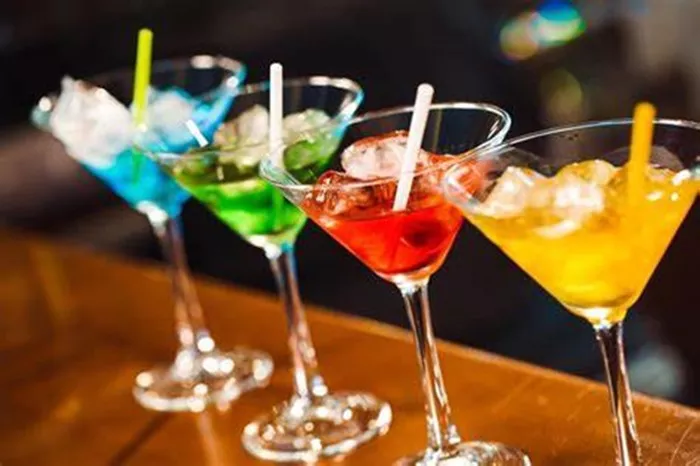Cocktails are a delightful combination of various ingredients that come together to create a unique and enjoyable drinking experience. But what are the standards that define a cocktail? In this comprehensive guide, we will explore the different elements that contribute to a well-crafted cocktail and discuss the various standards that exist in the world of mixology.
The Basics of a Cocktail
A cocktail is typically a combination of spirits, mixers, and garnishes.
The main components of a cocktail are the base spirit, which provides the alcoholic backbone, and the mixers, which add flavor, sweetness, acidity, and dilution.
Garnishes are used to enhance the visual appeal and add an extra layer of flavor to the cocktail.
Standards of a Cocktail
1. Balance:
A good cocktail should have a balance of flavors. This means that no single ingredient should overpower the others. The sweet, sour, bitter, and savory elements should be in harmony.
2. Dilution:
Cocktails need to be properly diluted to achieve the right texture and mouthfeel. Too much dilution can make the cocktail weak and watery, while too little dilution can make it harsh and unbalanced.
3. Temperature:
The temperature of a cocktail is important for both taste and enjoyment. Cocktails can be served chilled, on the rocks, or at room temperature, depending on the recipe and personal preference.
4. Appearance:
A visually appealing cocktail can enhance the drinking experience. The color, clarity, and presentation of a cocktail should be pleasing to the eye.
5. Garnish:
A well-chosen garnish can add an extra dimension of flavor and visual appeal to a cocktail. Garnishes should be fresh, appropriate for the cocktail, and add to the overall experience.
The Base Spirit
The base spirit is the foundation of a cocktail and provides the majority of the alcohol content.
Common base spirits include vodka, gin, rum, tequila, whiskey, and brandy.
The choice of base spirit depends on the flavor profile desired and the type of cocktail being made.
Mixers and Flavorings
Mixers are used to add flavor, sweetness, acidity, and dilution to a cocktail.
Common mixers include fruit juices, sodas, tonic water, and syrups.
Flavorings such as bitters, liqueurs, and cordials can also be added to enhance the flavor of a cocktail.
Garnishes
Garnishes are an important part of a cocktail and can add visual appeal and flavor.
Common garnishes include citrus twists, olives, cherries, mint leaves, and onions.
The choice of garnish depends on the cocktail and personal preference.
Measuring and Proportions
Accurate measuring and proportions are essential for making a consistent and balanced cocktail.
Jiggers, measuring spoons, and scales can be used to measure ingredients accurately.
The proportions of each ingredient should be carefully considered to achieve the desired flavor profile.
Preparation Techniques
Different cocktails require different preparation techniques.
Shaking, stirring, muddling, and blending are some of the common techniques used in cocktail making.
The choice of technique depends on the ingredients and the desired texture of the cocktail.
Presentation
The presentation of a cocktail is an important part of the overall experience.
Cocktails can be served in a variety of glasses, depending on the type of cocktail.
Garnishes should be placed carefully and attractively on the glass.
A coaster or napkin can be used to enhance the presentation.
Cocktail Variations
There are countless variations of cocktails, each with its own unique flavor profile and standards.
Classic cocktails can be modified by changing the base spirit, mixers, or garnishes.
New and creative cocktails are constantly being developed by bartenders and mixologists.
The Role of the Bartender
The bartender plays a crucial role in creating a great cocktail.
Bartenders should have a knowledge of different spirits, mixers, and preparation techniques.
They should be able to create cocktails that meet the standards of balance, dilution, temperature, appearance, and garnish.
Bartenders should also be able to provide excellent customer service and create a pleasant drinking experience.
Standards of Technique
1. Measuring:
Accurate measuring of ingredients is essential for creating a consistent and balanced cocktail. Bartenders should use proper measuring tools such as jiggers, measuring spoons, and scales to ensure accurate proportions.
2. Mixing:
The method of mixing ingredients can affect the texture and flavor of a cocktail. Shaking, stirring, and blending are common techniques, and each has its own advantages and disadvantages.
3. Straining:
Proper straining is important to remove any unwanted particles or ice from a cocktail. This helps to ensure a smooth and enjoyable drinking experience.
4. Chilling:
Cocktails should be served at the proper temperature. Chilling ingredients before mixing and using ice to cool the cocktail can help achieve the desired temperature.
See Also: What’s The Classiest Cocktail?
Standards of Service
1. Knowledge:
Bartenders should have a deep knowledge of different spirits, mixers, and cocktail recipes. They should be able to answer questions and make recommendations based on the customer’s preferences.
2. Skill:
Bartenders should have the skills to prepare cocktails quickly and efficiently while maintaining high standards of quality.
3. Attitude:
A friendly and professional attitude can enhance the customer’s experience. Bartenders should be attentive, polite, and passionate about their craft.
4. Environment:
The atmosphere and surroundings in which a cocktail is served can also contribute to the overall experience. A clean, comfortable, and inviting bar can make a big difference.
Conclusion
In conclusion, there are several standards that define a well-crafted cocktail. Balance, dilution, temperature, appearance, garnish, measuring and proportions, preparation techniques, presentation, and the role of the bartender all contribute to the overall quality of a cocktail. By understanding these standards and experimenting with different ingredients and techniques, you can create delicious and unique cocktails that will impress your friends and guests.
You might be interested


